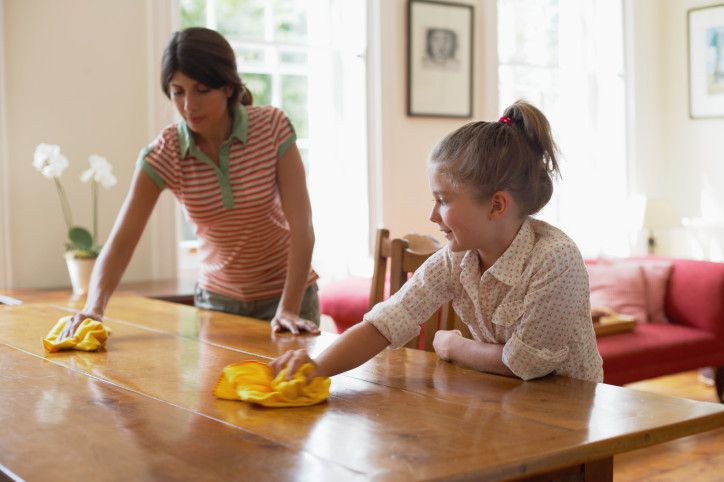
Positive Parenting is sometimes called positive discipline or gentle guidance, which is simply guidance that will keep children on the right path in life. The many goals of positive parenting are to raise children who want to behave appropriately and properly and to raise children who will turn into happy, healthy, well-adjusted, and productive adults. Here are steps to fit positive parenting into your family’s life.
Say “no” sometimes – It is important for children to learn they can’t always get everything they want, and to be able to wait and/or earn desired items. Giving children a chance to learn how to properly respond to being told no is very important to their development into adults. As adults, we are faced with being told no many times and we need to know the proper response to those times. Expecting to get everything we want, when we want it is unrealistic in any stage of life and it can hold a child back emotionally if they expect a yes answer every time. You do not have to say no all the time and there will be many times a yes answer is more appropriate. Use your judgment when saying yes or no to things.

Create a daily routine – Children respond quite well to guided structure and routine. Daily routines can make things like getting ready in the morning, dinner, and bedtime a smoother process for everyone. Sometimes a routine may need to be interrupted but for everyday life, a routine is the answer to a lot of tears, frustration, and crying.

Avoid spanking or other types of physical discipline – This can lead to your child being fearful of you and/or teach them that hitting can be an appropriate response to anger or other emotions. There are so many other alternative consequences for negative behaviors other than physical discipline. If your current consequence/discipline is not stopping the behavior, then keep trying different ones until you find a consequence that works.

Be a good role-model – If your kids see you responding by yelling or raising your voice every time something goes wrong, they are most likely going to start responding to the exact same way. Kids will often model the behaviors of their parents, so remaining calm and cool in times of crisis will help your children learn to do the same. How can we expect our children to have good behavior and manners if we do not? Children are very aware of the hypocrisy in adults and it will be very hard to get them to behave if they see behavior that is otherwise not the same.

Be consistent with consequences – If you punish a negative behavior one time, but not the next time, that negative behavior is going to never go away. Being inconsistent can cause a lot of confusion in your child and they will not know what is expected of them. Also, make sure all family members are on the same page and addressing all behaviors in the same way. Children thrive on consistency and routine and when they know what to expect then they model their behavior accordingly.
Follow through This is a natural next step from the last one. If you ask your child to do something, you need to make sure that they do it. If you ask and then never follow through, your child will learn they don’t need to listen to you. Even when they cry or get upset, it is very important for you to remain firm and ensure they follow through with what you asked them to do. This is also for adults. If you say you will or will not do something, you need to always follow through. Our children watch our actions, words, and behaviors.

Provide natural consequences – This will help your child learn that their behavior can have both positive and negative consequences. If they break a toy, do not run out and buy them another one of the same. Doing this will teach your child there are no consequences for their behavior. On the other hand, if they get all A’s on their report card you would want to provide some type of reward and praise. You follow this for all negative and positive behavior.
Give your child freedom to make their own mistakes and to learn from them – It is natural to want to protect your child and prevent them from making mistakes, however, it is important for children to learn from their mistakes and take steps to prevent those same mistakes from occurring in the future. We will not always be there to rescue our children. They will need to learn to stand on their own two feet and make decisions on their own. The more they learn as children to handle their mistakes and fix them and grow from them, the more they will be able to do this as adults.

Reward and praise behaviors that you want to see again in the future – For example, if your child cleaned their room the first time you ask, reward that behavior instead of letting it go unnoticed. Rewarding and praising appropriate behaviors will increase the likelihood of these behaviors occurring again. There should not always be rewards since as adults we are not rewarded for everything we do. But this will give a child the desire to do good and make good choices knowing it was the right thing to do.
Taking steps towards positive parenting is important and will give your child the skills they need for adulthood. They watch what we say and do and we need to provide them with good choices as they watch us. Parenting is not easy and it takes a lot of work. But in the end, it is worth the work as we produce happy, healthy, responsible and well-adjusted adults.

